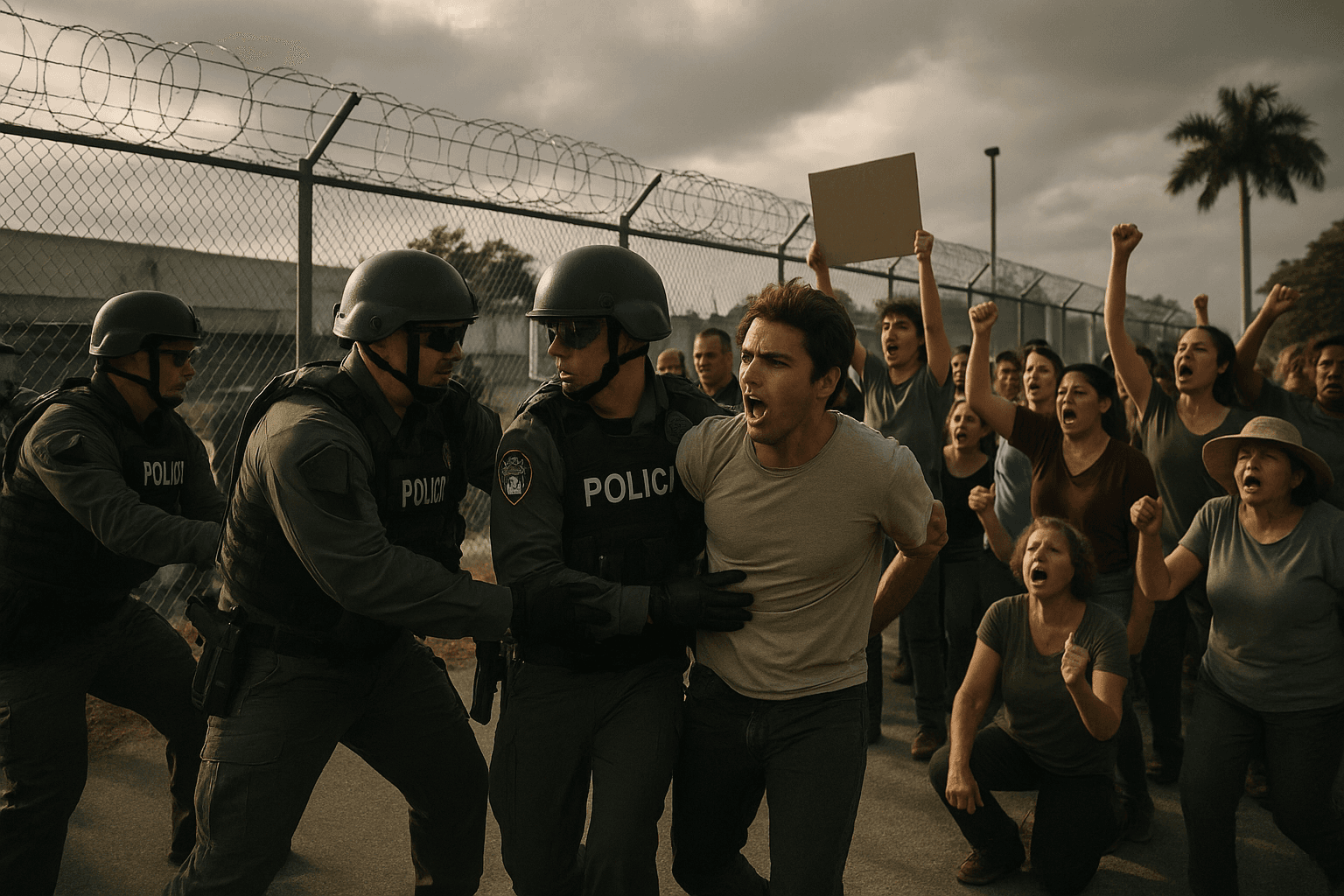31 Arrested Outside Krome ICE Facility, Protesters Demand Closure
Demonstrators gather today outside the Krome ICE detention center in Miami Dade to protest alleged inhumane conditions and treatment of migrants held at the facility. At least 31 protesters are arrested after civil disobedience at the facility gates, an escalation that underscores ongoing tensions over immigration policy and oversight nationwide.

Hundreds of protesters gathered today at the gates of the Krome ICE detention center in Miami Dade, calling for the facility to be closed and for stricter oversight of immigration detention practices. The demonstration, described in on scene accounts compiled in Democracy Now! headlines roundup, ended with at least 31 arrests after protesters engaged in acts of civil disobedience that law enforcement described as obstruction.
The arrests mark the latest confrontation in a sustained national campaign against increasingly restrictive immigration policies and conditions inside detention facilities. Activists and advocacy groups have long pointed to Krome as emblematic of broader concerns about medical care, access to legal counsel, and use of prolonged detention. Today's action was intended to draw local and federal attention to those complaints and to pressure elected officials to pursue structural reforms.
Law enforcement officials on scene said the detained individuals were taken into custody after blocking access to a facility entrance. The agency operating Krome is part of U.S. Immigration and Customs Enforcement, which is housed within the Department of Homeland Security. The detentions are governed by federal statutes and regulations while arrests for obstruction and related municipal charges fall under local enforcement authority, creating a layered jurisdictional environment that often complicates accountability.
The protest highlights institutional gaps that critics say hinder transparent oversight. Calls for independent inspections, increased access for legal advocates and journalists, and strengthened reporting to the DHS Office for Civil Rights and Civil Liberties and the inspector general have intensified in recent months. Advocates suggest that public actions and civil disobedience are intended to force a political response from lawmakers who control funding and policy for immigration enforcement.
Politically, the demonstration is likely to resonate in Miami Dade and beyond. Immigration remains a central issue in Florida politics and in national campaigns, cutting across traditional partisan alignments and influencing turnout among communities with high immigrant populations. For elected officials representing South Florida, the clash presents a test of how to balance enforcement priorities with constituent concerns about humane treatment and oversight.

The arrests may also prompt legal challenges and further mobilization. Organizers often use arrests as a deliberate tactic to amplify media attention and to create pressure points for policy change. At the same time, law enforcement agencies emphasize public order and safety, framing intervention as necessary when protest actions obstruct facility operations or jeopardize access.
Federal agencies have faced repeated scrutiny over detention conditions in recent years, and today’s events add urgency to debates about whether current mechanisms for inspection and accountability are sufficient. For residents of Miami Dade, the demonstration underscores the local impact of federal immigration policy and the way civic engagement shapes how those policies are debated and enforced.
As the detained protesters are processed, advocacy groups are expected to push for releases and to demand that elected officials pursue formal inquiries. The episode will likely become a reference point in ongoing discussions about detention reform, oversight mechanisms and the political calculus around immigration ahead of upcoming elections.


